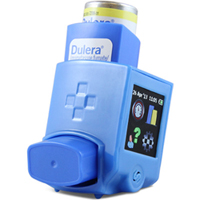Mobile apps are where it's at. That's the conclusion of comScore's latest report on the consumer-app nexus. And that's one conclusion of PricewaterhouseCooper's new report on technology in the pharma business.
According to comScore, people now spend much more time using mobile apps than they do on their desktop computers. App usage grew by 52% over the past year, the research firm found. "Apps drive the vast majority of media consumption activity on mobile devices, accounting for approximately 7 out of every 8 minutes," comScore's report notes.
Meanwhile, PwC's Digital IQ survey found that 29% of drug and device executives view mobile as the most important digital technology for their companies over the next 3 to 5 years. And companies expect their "biggest play" to be in mobile, the firm's report states, with more than 60% investing in mobile tech for consumers.
What does this mean on the practical side? As the Pharma Marketing Blog notes, not much, at least not in the form of advertising. The boom in mobile apps hasn't translated into a boom in mobile-app promotions. And as PwC notes, pharma's mobile apps tend to be focused on transmitting info to consumers rather than really engaging them.
 |
| Nexus6's SmartTouch inhaler--Courtesy of Nexus6 |
Some relationship-oriented mobile approaches out there? PwC mentions a New Zealand-based company, Nexus6, which recently won FDA approval for its SmartTouch inhaler, which records each dose and sends the data to the patient's mobile device. GlaxoSmithKline's ($GSK) Diabetes HealthMate app--along with diabetes apps from Sanofi ($SNY) and others--tracks blood sugar readings and shows how mood, meds, exercise, and diet interact with patients' physiological measures. As FiercePharmaMarketing has reported, Johnson & Johnson ($JNJ) recently launched a "quantified self" app to collect health data from other tracking apps and turn the whole process into a game.
And then there's RunPee, a movie-viewing app that Astellas Pharmaceuticals has hopped onto for promotional purposes. The company sells Myrbetriq, a treatment for overactive bladder; the app tells users the best time to "run and pee" during particular movies, to avoid missing key scenes. So, Astellas has been advertising with RunPee, via an ad that drives viewers to a mobile product info site. The campaign also involves in-cinema advertising to promote the app, the blog notes.
If the PwC survey participants are correct, more of these "engaging" apps will be in the offing. But one aspect of that survey explains why they're not out there already--and why new rollouts are likely to be slow. Three-fourths of industry execs said their biggest barrier to using newer technologies successfully is an inability to quickly understand and adopt them.
- download the comScore report
- read the Pharma Marketing Blog item
Special Report: The top 10 pharma companies in social media